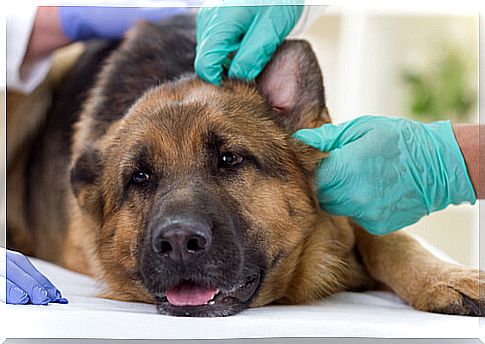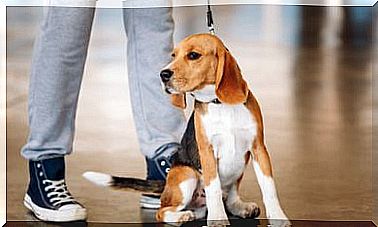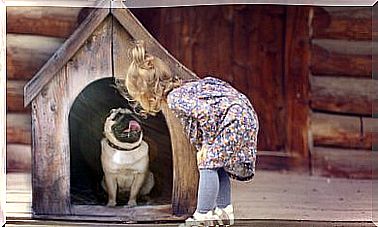Does A German Shepherd Test Positive For Coronavirus?

Since the pandemic arrived and put the world population in check, multiple significant events have been presented, some more media than others. For example, the court battle for coronavirus that was unleashed after a German shepherd in the city of Hong Kong tested a weak positive for the disease was recently announced .
Hong Kong German Shepherd Raises Alarms
To understand a little more what has happened, we must break down the information provided by the South China Morning Post:
- The German shepherd is two years old and is the pet of a 30-year-old woman, a resident of the Pok Fu Lam area, recently infected with coronavirus.
- The concern was unleashed when, when doing some tests, it was found that in the animal’s snout there were remains of the virus.
- However, the animal has turned out to be asymptomatic.

- According to Professor Malik Peiris, a virologist specializing in public health at the University of Hong Kong, it is likely that both the German Shepherd and the Pomeranian who tested positive for coronavirus have been infected by humans.
- On the other hand, the virologist indicates that the fact that an animal is infected does not mean that it has the disease or shows symptoms.
- And what has happened since then with dogs that have tested positive for coronavirus? They have been quarantined, where they remain under observation.
Can pets get the virus?
Due to the fear and hoaxes surrounding this type of news, the abandonment of pets has increased dramatically. For this reason, the authorities insist on the importance of consulting official and reliable sources, as well as putting into practice a very simple measure: in case of doubt, consult a trusted veterinarian.
Additionally, it is highly recommended to appeal to common sense and responsibility, as they are key to avoid taking drastic measures and harming animals. Especially at times like this.
It is important to note that there are many diseases that are typical of animals and that, by name, are linked to the coronavirus, however, it is not about the pandemic that is affecting humanity.
An example of similar diseases in pets is the well-known feline coronavirus, which affects them exclusively. This means that they cannot transmit it to people.
On the other hand, dogs can suffer from canine coronavirus, which, like feline coronavirus, is a disease that only affects them.
So can pets get infected with COVID-19 and pass it on to humans? No. There is no scientific evidence for this.
There is also no evidence that such a process can occur, but the reverse, that is, the transmission from dogs and cats to humans. No case is known worldwide, and the limitless spread of the virus must be considered.
The good work of veterinarians and disseminators

Veterinarians have not been left behind when it comes to contributing their grain of sand in this state of alarm. Many are providing their services to guarantee the production chain, food safety and the welfare of all animals, as indicated by the president of the OCV.
On the other hand, scientific disseminators and all those professionals in the area of biology (and other branches of science) have contributed greatly to responsibly inform the population, to avoid the abandonment of pets and bad practices when it comes to take care of them or clean them after a walk on the street.
Beyond their specialty, the underlying message of all professionals is: sanity and peace of mind. Do not succumb to hoaxes and panic. It must be remembered that, in case of doubts, you can always consult a trusted veterinarian by phone.









